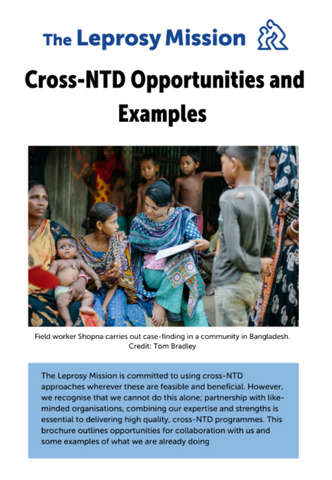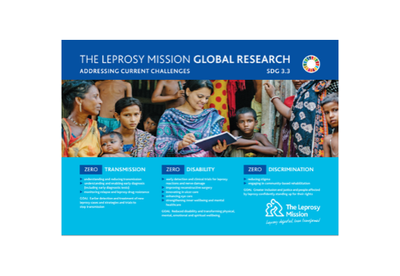
Working in partnership
We won’t defeat leprosy alone.
Working in partnership is vital to our success. We support and develop our partners to help them carry out cost-efficient, effective, sustainable work. And we learn from them and share expertise to continually improve what we do and achieve our goals.
Our partners include:
- Churches and other faith groups, who help us deliver services for people affected by leprosy. For example, running a mobile clinic, hosting a disability resource centre, or treating people in a war-affected area. Interfaith leprosy committees raise awareness and tackle stigma, and help people claim their rights.
- Governments at all levels. Local partnerships are focused on healthcare-staff training, technical support and awareness raising. While our partnerships with more central governments are focused on advocacy and policy change.
- Health services, which we support with staff training, diagnosis and case management. In the countries where we have hospitals, these complement the public health system by offering specialist leprosy services.
- Professional bodies. For example, in Nepal, we connect our local partners with the Chambers of Commerce for our employability project. And in Nigeria, we facilitate a partnership with the Association of Physiotherapists.
- Businesses, which support and sponsor our projects. For example, in India, The Leprosy Mission partners with companies to help people affected by leprosy find work after they have completed courses at our vocational training centre. We also have UK-based corporate partners.
- Trusts and foundations, which support our work in general or fund specific projects. For example, in Nepal, UK-based trusts are supporting 1,300 people affected by leprosy and disability to earn a living, become more active in their community and demand better conditions. Find out how your trust or foundation can work with us.
- Research institutions and universities. For example, we are currently partnering with the University of Warwick and the University of Birmingham on research into ulcer treatment. And in Nepal we are supporting work with the Netherlands' Leiden University to develop a new early diagnostic test for leprosy.
People affected by leprosy know what is best for them.
They are our most important partner. We work with them and their local organisations to design, implement and evaluate projects with the context in mind. Any support we provide, whether healthcare, job training or human rights-based advocacy, is a response to people’s needs. As well as working with people affected by leprosy locally, we amplify their voices on the international stage.
Our code of conduct requires our staff and partners to live our values of compassion, justice, integrity, inclusion and humility. We have a zero-tolerance approach to harm to, or exploitation of, our staff, volunteers and the communities we work with. Safeguarding these people is our top priority.
